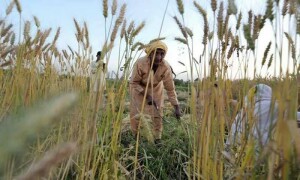The Punjab government has taken a significant step by amending its agricultural income tax (AIT) law, aligning the tax rates for individuals and businesses with the federal income tax rates. The newly passed bill also brings earnings from commercial or “income-generating” livestock under the purview of AIT, while eliminating certain exemptions that were previously enjoyed by farmers with landholdings under 12.5 acres or absentee landowners—unless their annual income is below the tax threshold of Rs600,000. Additionally, the amendments introduce tougher penalties for tax defaulters.
These changes aim to create a more equitable tax system, close major loopholes for tax evasion, and respond to calls from economists, the corporate sector, and other stakeholders to effectively tax farm incomes. Previous governments had hesitated to tackle this issue due to the influence of large landowners. However, the IMF made the reform a key condition for its $7 billion program with Pakistan.
The IMF emphasized that provinces should step up their tax collection efforts, specifically with regard to agriculture income tax. The IMF’s staff-level agreement with Pakistan in July called for full harmonization of provincial AIT regimes with federal income tax laws, which will take effect from January 1, 2025. Other provinces, particularly Sindh, are expected to implement similar changes to their farm income tax laws in the coming weeks to meet this deadline.
However, while passing the amendments was the relatively easy part, the real challenge lies in their implementation, which is set to begin with the next fiscal year. For one, both provincial authorities and the Federal Board of Revenue (FBR) have limited capacity to accurately assess farm incomes and collect taxes accordingly. A significant portion of Pakistan’s agricultural market operates outside formal banking channels, with many transactions conducted in cash. This means that accurately calculating farm output will require building capacity among tax officials to handle these complexities.
Moreover, the responsibility for assessing farm income and collecting taxes will fall to revenue officials such as patwaris, who are often criticized for corruption. Under the Land Revenue Act of 1967, these officials have broad powers to penalize and detain defaulting farmers for up to 40 days. Smallholder farmers, many of whom have minimal taxable income, are concerned that this power could be exploited by corrupt officials or politicians from ruling parties to pressure opponents.
While the amendments to the agricultural income tax law are an important step toward a fairer tax system and improving Pakistan’s low tax-to-GDP ratio, which is currently under 10%, successful implementation will require well-trained tax collectors, proper tools for assessing farm incomes, and systems to reduce corruption and prevent political manipulation.



